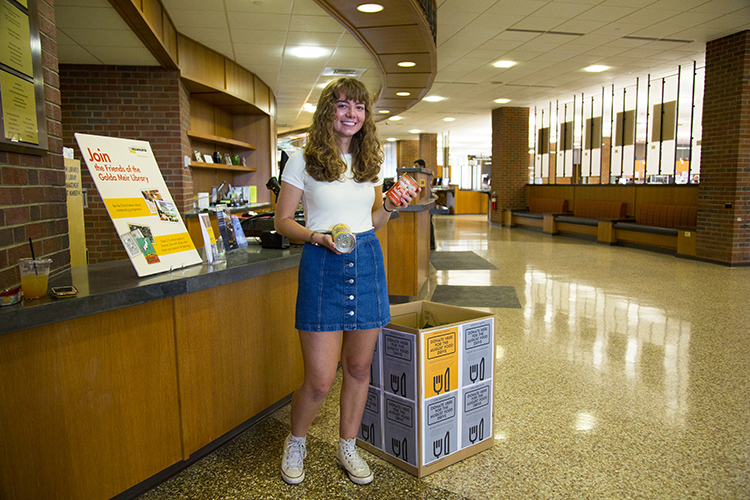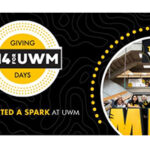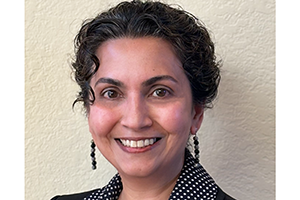Some students live on the edge of financial calamity. An unexpected car repair can break the bank. A shoestring budget can leave them short of food by the end of the week. It’s enough to drive some out of college altogether.
“Sometimes people assume that college students have money,” says Rebecca Freer, interim dean of students. “That’s not always true. There are a lot of people who are on unstable financial footing. We’ve even found some students go without food to meet other expenses.”
A 2016 survey by UWM’s Student Association found that almost half of student respondents had not had enough food for themselves at some time while attending UWM.
To relieve some of those financial difficulties, UWM is bringing together resources to help students. In a new effort called Panther Assist, the university will provide one-time financial grants, a food pantry, clothing and other assistance.
“One of UWM’s missions is accessibility,” said Joe Maddalena, director of foundation relations at UWM. “We care about our students, and we want to help them overcome financial emergencies, graduate on time and launch their careers.”
The campus food pantry
After releasing the report on student hunger at UWM, the Student Association began working to open a campus food pantry. The pantry will first be available in the fall 2017 semester through the Dean of Students office.
“We can’t expect students to succeed in the classroom when they can’t even meet their essential needs,” said Dakota Crowell, the Student Association’s vice president of student affairs, who worked to create the pantry. “This project will help our diverse student body meet its needs.”
Students can get nutritious, nonperishable food from the Dean of Students office in Mellencamp Hall 118, which is open Monday through Friday, 8 a.m. to 4:30 p.m. They can also request food through the Women’s Resource Center, the LGBT Resource Center, the Inclusive Excellence Center or the Student Association.
In January 2018, the pantry will move to a permanent location in Union Room 348, the former location of the Kenwood Inn restaurant.
The pantry accepts donations of nutritious, nonperishable foods, such as canned fruits and vegetables, dried pasta, rice, low sodium pasta sauce, peanut butter, baby food and boxed milk. Donations can be made at the Student Association’s office in Union Room E79 and the Dean of Students office. The association will also hold several food drives during the school year.
Emergency grants
A new program starting this fall will provide emergency grants to qualifying students. UWM Emergency Grants can cover expenses related to unforeseen circumstances that affect a student’s ability to be successful academically.
UWM has received a $600,000 grant to help undergraduate students overcome nonacademic financial emergencies. The university provided an additional $40,000 and plans to raise an additional $35,000 over the next year.
The funds will go toward one-time emergency grants. During the two-year cycle, students can receive one grant of up to $1,000 to cover expenses such as car repairs, food, rent, medical bills or utilities that are related to unforeseen emergencies. The grants cannot cover tuition, fees, books or other academic costs.
The Dean of Students office will facilitate the grants. Eligible students are undergraduates who have completed the Free Application for Federal Student Aid and who have a FAFSA-estimated family contribution of $7,000 or less.
Students can apply for the grant at the Dean of Students office or online.
A committee will review completed applications within one day. It will take an additional two days to process the paperwork and cut a check.
“Three days might seem like a long time,” Freer said, “but it’s really nothing compared with how long it typically takes to get a check. If was a big effort to get the campus supply chain organized, but when you’re doing something so positive, people rally around it.”
(The first two emergency grants were awarded Thursday, Sept. 7, one to an online student in Texas affected by Hurricane Harvey.)
The office estimates that if the awards average $500, the new emergency grants could help up to 660 students the first year and 690 the second year.
The $600,000 grant comes from the Great Lakes Higher Education Corp., a nonprofit student loan servicer. UWM is one of 32 four-year universities to receive a grant in 2017.
As part of the grant’s requirements, UWM raised $40,000. UW Credit Union, Forward Scholars, the College of Engineering & Applied Science, the College of Health Sciences, the College of Letters & Science, the College of Nursing, the Helen Bader School of Social Welfare, Peck School of the Arts, the School of Education, the School of Information Studies, Zilber School of Public Health and Stan Stojkovic, dean of Helen Bader, donated funds to meet and exceed the goal.
The UW Credit Union will also start offering monthly financial literacy workshops in fall 2017. Topics will include information about budgeting, types of financial aid and loans, the actual cost of full-time and part-time education, and community resources.
“More so than ever, students navigate a lot of things while they’re in school,” Freer says. “The decision to eat or buy a textbook can shape a student’s entire life. These small grants don’t solve everything. But $1,000 can buy time to get students the help they need.”
Panther Assist also includes the UWM Career Closet, where students can obtain free professional attire for job interviews.







